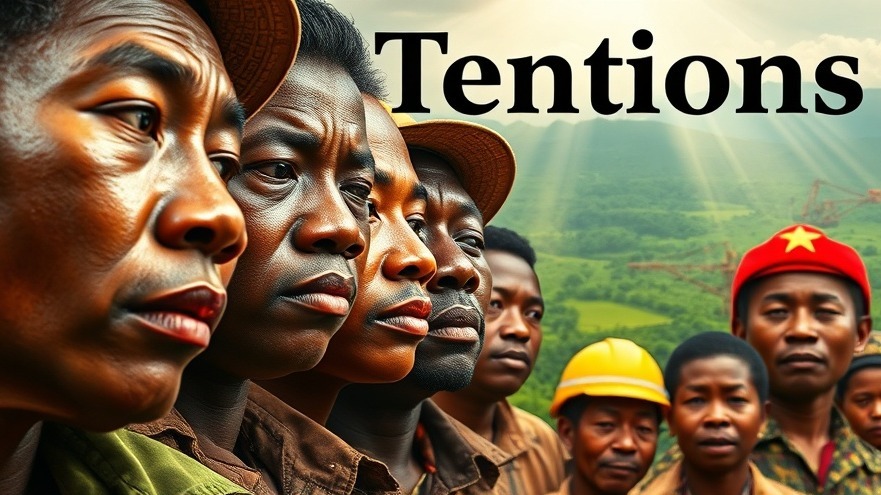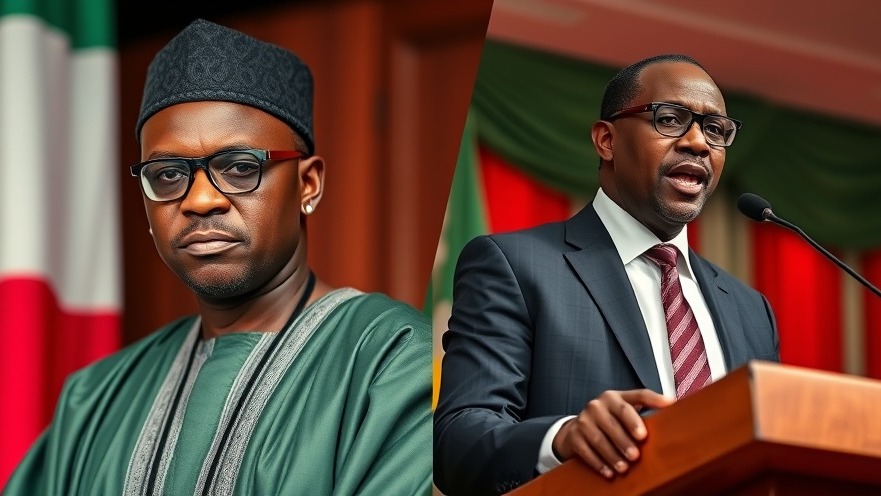
A Controversial Mining Deal Exposed: The DRC and China
The Democratic Republic of Congo (DRC) is at the frontline of a controversial mining deal with China that has sparked significant backlash from civil society organizations. The contract, originally signed in 2008 and renegotiated in 2024, has raised alarms over financial transparency and the potential for substantial economic losses for the Congolese state.
According to the "Congo is Not for Sale" coalition, the renegotiated terms favor Chinese companies disproportionately. They allege that the DRC could face a staggering loss of $132 million in 2024 alone due to this renewed agreement, branded as the 'contract of the century.' NGOs argue that this illustrates a dire need for a reassessment of contracts that perpetuate financial inequity and lack adequate oversight.
The Broader Implications of Resource Dependency
The concerns extend beyond financial ramifications. The DRC is blessed with vast mineral wealth, holding the world's largest reserves of cobalt and considerable copper deposits crucial for the growing electric vehicle market. However, the renewed mining deal raises questions about sustainable development and the ethical implications of allowing foreign companies to exploit local resources.
Interestingly, the DRC's predicament reflects a wider trend in Africa, where dependency on mineral exports has often led to economic inequalities and social unrest. Experts are calling for a reevaluation of how African nations engage in global trade, particularly with nations like China, to ensure that local populations benefit from their resources.
The Consequences of Insecurity and Violence
Insecurity remains a pressing issue in Eastern DRC, where violence related to mining activities is common. Reports indicate that regions like Bukavu face daily threats, where local residents live under constant fear due to the presence of armed groups. Amnesty International reports have documented severe human rights abuses linked to industrial mining operations, including forced evictions and violence targeting displaced communities.
As tensions rise, the need for robust governance structures becomes clear. The DRC's political landscape requires urgent reforms that prioritize citizen safety and resource management to avert a complete crisis.
Geopolitical Power Play: DRC's Position in Global Markets
The ongoing conflict and mineral exploitation strategies in the DRC highlight significant insinuations in global geopolitics. As nations like Rwanda face sanctions for their involvement in the DRC conflict, questions arise about how diplomatic relations define the paths of international business and local governance.
For policymakers and investors, understanding the geopolitics of Africa is becoming crucial. The DRC's mineral wealth places it at the center of powerful economic interests; therefore, ensuring ethical and fair agreements must be prioritized to maintain stability and protect human rights.
The Path Forward: Sustainable Solutions
Moving forward, it's essential to explore sustainable and equitable mining practices that facilitate the DRC's economic growth while safeguarding human rights. Initiatives aimed at improving negotiation conditions and enforcing transparency could lead to better management of the nation's resources, ultimately benefiting both local communities and international stakeholders.
Moreover, as investors and global leaders observe the unfolding situations in Africa, they have the opportunity to support policies that align ethical practices with economic interests. By doing so, they can foster an environment that sustains both human dignity and economic prosperity.
Final Thoughts
The DRC stands at a crossroads where its decisions will shape not only the future of its citizens but also its role in the global economy. Stakeholders must acknowledge their responsibilities and work collaboratively to establish a more equitable framework for resource management.
As we reflect on the DRC's resource challenges, let us remain vigilant and strive for actionable insights that foster an inclusive and sustainable future for Africa.
 Add Row
Add Row  Add
Add 


 Add Row
Add Row  Add
Add 

Write A Comment